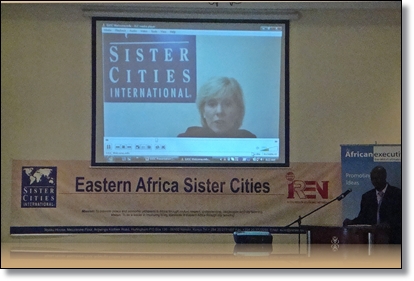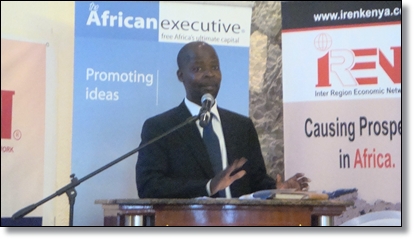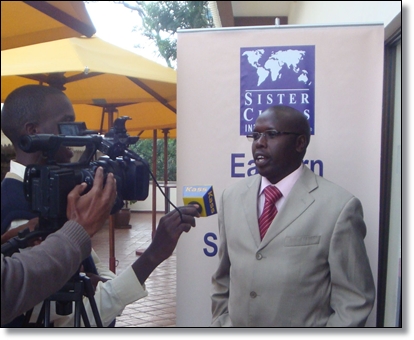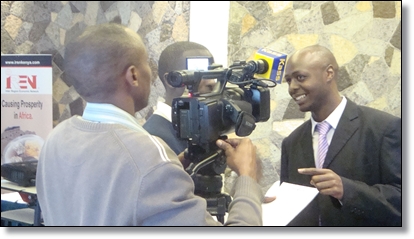Kenya County Representatives Brainstorm on City Twinning
 |
|
President and CEO of Sister City International, Mary Kane, addresses the participants. |
The leaders observed that due to globalization, ideas need to be shared and areas of best practice emulated. Dr. Nzilu, the Marketing Director of Brand Kenya suggested that twinning should be done with cities that have overcome similar challenges experienced in our urban areas. He gave an example of Nairobi’s road traffic challenge and how it can learn from Johannesburg. “We should encourage benchmarking with the best in class to enable us match international standards,” Dr. Nzilu Suggested.
 |
|
EASC Regional Director James Shikwati addresses the delegates |
“We welcome south-south twinning, it is a great initiative, it will help us to match with other towns and publicize various resources found in our areas and open avenues for investors and tourists to visit the region,” commented Mr. Festus Lorogoi, the Town Clerk of Lodwar Municipal Council.
 |
|
The press interviews Albert Kochei from El Geiyo Marakwet County. |
The leaders in the forum observed that it is important to accept generational change and youth ought to be involved in county decisions and leadership. “We need to tap youth talent and export it; this will improve the economic and social status of our youth,” Mr. Hesborn Michira, a councillor from Kisii County said.
The president and CEO of Sister City International, Mary Kane, who addressed the participants though video was optimistic that the EASC through it’s South to South and North to South model will assist the twinning partners to mutually benefit from twinning. “We have the confidence that through EASC, Eastern Africans can share areas of best practice and use twinning to build mutual understanding and cooperation between the parties, ” she said.
 |
| EASC Program Manager Raymond Kiptum is interviewed |
The leaders were in agreement that twinning should be done after matching the different towns/counties to ensure that they are compatible. They suggested that EASC office should assist in matching and the process of twinning.
EASC plans to hold such forums that promote people-to- people diplomacy as well as share ideas, good practices and brainstorm solutions to common challenges affecting their regions. Through such forums, EASC envisages that solutions to problems such as poor drainage, congestion, poor housing and poverty can be forged. One such forum is planned for July 2012 which will bring together leaders from the Eastern Africa Region to discuss how cities in the region can partner.
By Raymond Kiptum
Program Manager, EASC.
